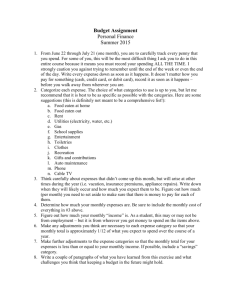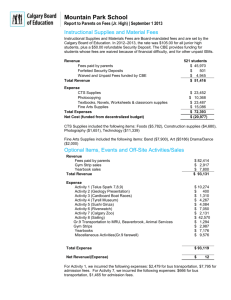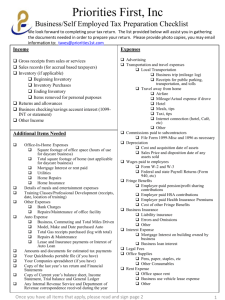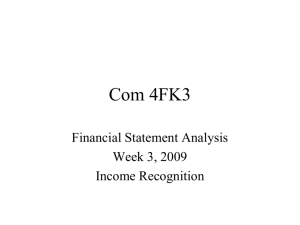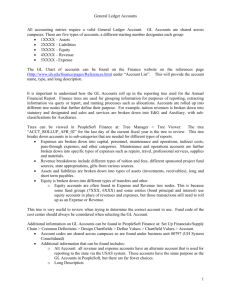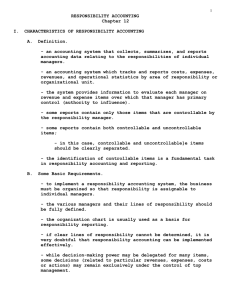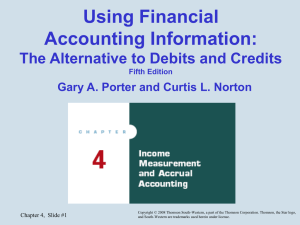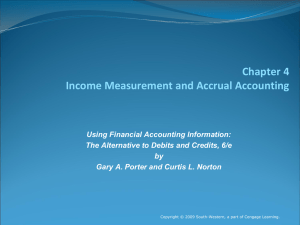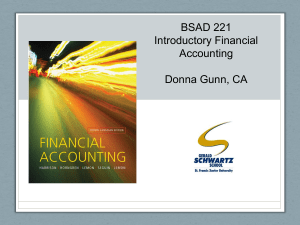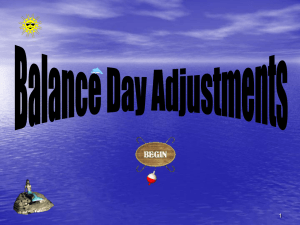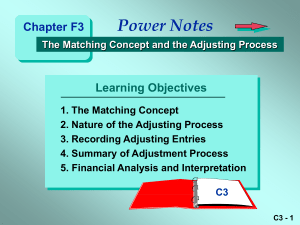The double-entry system for expenses and revenues
advertisement
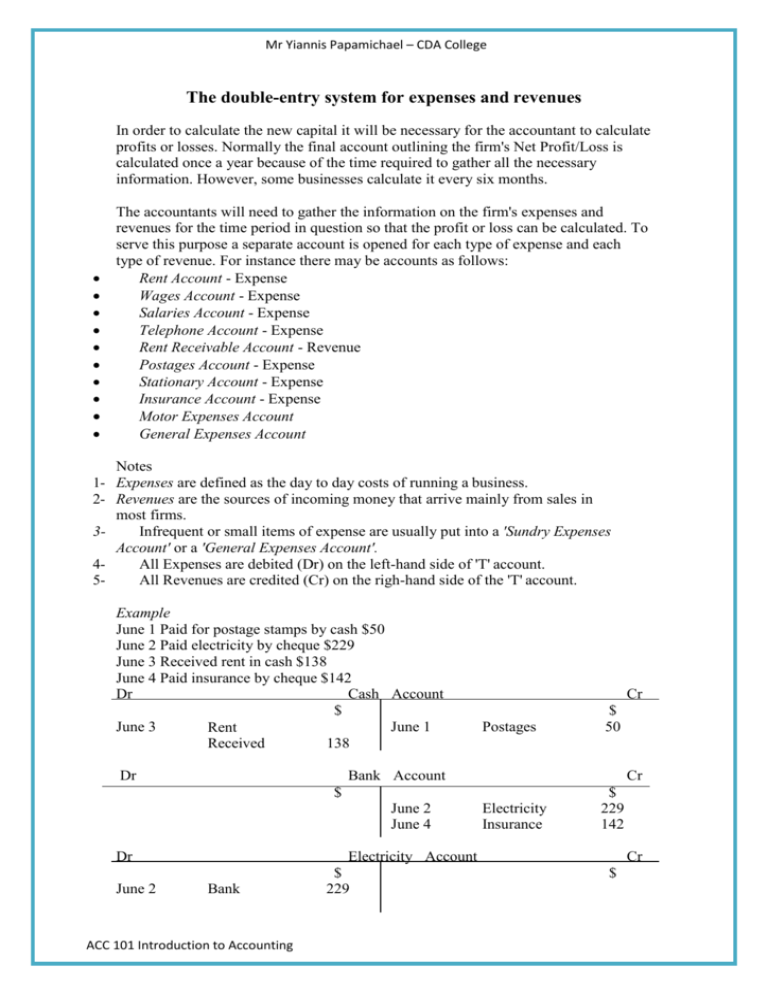
Mr Yiannis Papamichael – CDA College The double-entry system for expenses and revenues In order to calculate the new capital it will be necessary for the accountant to calculate profits or losses. Normally the final account outlining the firm's Net Profit/Loss is calculated once a year because of the time required to gather all the necessary information. However, some businesses calculate it every six months. 12345- The accountants will need to gather the information on the firm's expenses and revenues for the time period in question so that the profit or loss can be calculated. To serve this purpose a separate account is opened for each type of expense and each type of revenue. For instance there may be accounts as follows: Rent Account - Expense Wages Account - Expense Salaries Account - Expense Telephone Account - Expense Rent Receivable Account - Revenue Postages Account - Expense Stationary Account - Expense Insurance Account - Expense Motor Expenses Account General Expenses Account Notes Expenses are defined as the day to day costs of running a business. Revenues are the sources of incoming money that arrive mainly from sales in most firms. Infrequent or small items of expense are usually put into a 'Sundry Expenses Account' or a 'General Expenses Account'. All Expenses are debited (Dr) on the left-hand side of 'T' account. All Revenues are credited (Cr) on the righ-hand side of the 'T' account. Example June 1 Paid for postage stamps by cash $50 June 2 Paid electricity by cheque $229 June 3 Received rent in cash $138 June 4 Paid insurance by cheque $142 Dr Cash Account $ June 3 June 1 Rent 138 Received Dr Cr Postages $ 50 Electricity Insurance $ 229 142 Bank Account Cr $ June 2 June 4 Dr June 2 Bank ACC 101 Introduction to Accounting Electricity Account $ 229 Cr $ Mr Yiannis Papamichael – CDA College Dr June 4 Bank Insurance Account $ 142 Cash $ 50 Dr June 1 Dr Cr $ Postages Account Rent Receivable Account $ June 3 Cash ACC 101 Introduction to Accounting Cr $ Cr $ 138
